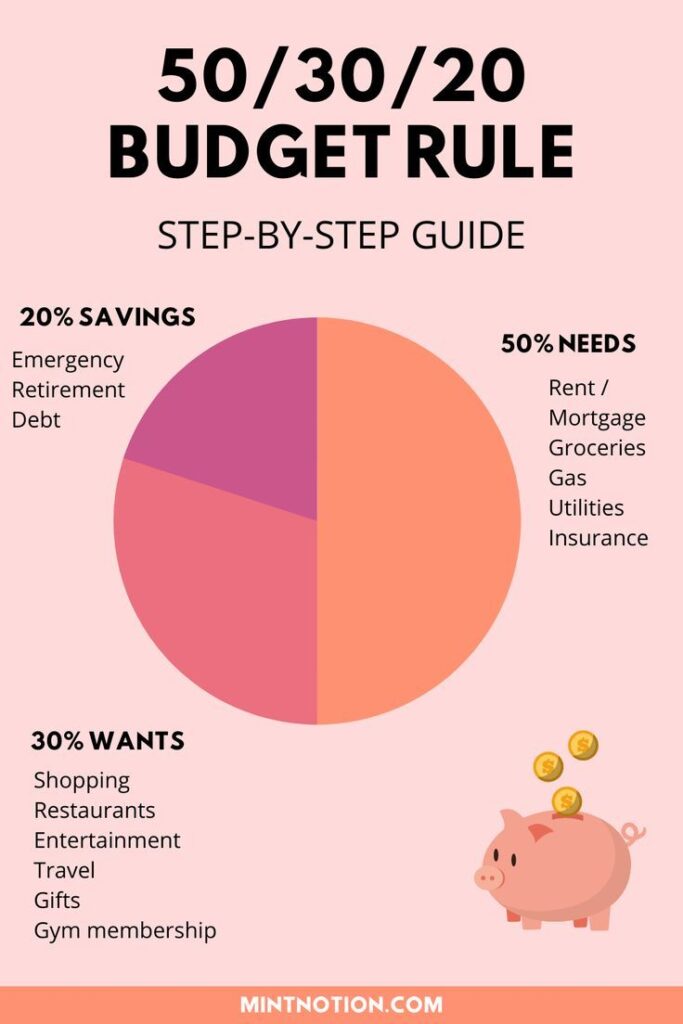Money management is an essential skill that involves managing one’s finances effectively.
In this article, we will discuss the importance of money management and the various benefits it offers. We will also highlight some strategies, tips for effective money management, and common mistakes to avoid.
What is Money Management?
Money management is the process of managing your money to meet your financial goals. It involves budgeting, saving, investing, and spending money wisely. The goal is to achieve financial stability and security, allowing you to live a stress-free life.
Importance of Money Management
Money management is vital as it helps you plan your financial future effectively. With proper money management, you can manage your income and expenses, save for future goals, and avoid debt.
Additionally, effective money management helps individuals make informed financial decisions, such as purchasing a home or investing in stocks.
Why is it Important to Learn about Money Management?
Learning about money management is critical as it equips you with the knowledge and skills necessary to manage your finances effectively.
With good money-handling skills, you can achieve financial stability, plan for future goals, and avoid financial stress. In essence, learning about it can help you take control of your financial future.
#1: The Benefits of Money Management

Achieving Financial Goals
Effective management of money allows you to set financial goals and work towards achieving them. Whether it’s saving for a down payment or mortgage on a house, or investing in your retirement, proper money skills can help you achieve your financial objectives.
Reducing Financial Stress
Managing your money effectively reduces financial stress, allowing you to live a more comfortable life. With good money management skills, you can plan for unexpected expenses and have the financial resources to manage them.
Building Wealth
Proper money management helps individuals build wealth over time. Through saving and investing, individuals can grow their wealth and achieve financial independence.
Avoiding Debt
Effective management of money helps individuals avoid debt. With proper budgeting and spending habits, individuals can live within their means and avoid overspending on credit.
Preparing for Emergencies
Managing your money Effectively involves planning for emergencies. With an emergency fund, individuals can manage unexpected expenses without resorting to debt or sacrificing their financial stability.
#2: The Consequences of Poor Money Management

Debt and Financial Struggles
Poor money management can lead to excessive debt and financial struggles. Overspending, failing to save, and living beyond one’s means can lead to unmanageable debt and financial instability.
High-Interest Rates
Poor money management can also result in high-interest rates, making it challenging to pay off debt. High-interest rates can make it challenging to manage debt and can lead to financial stress and instability.
Limited Financial Opportunities
Poor money management can limit an individual’s financial opportunities. Without proper financial planning, individuals may miss out on investment opportunities or other financial resources that can help them grow their wealth.
Increased Stress and Anxiety
Poor money management can lead to increased stress and anxiety. Living paycheck to paycheck and struggling to make ends meet can take a significant toll on an individual’s mental health.
Damaged Credit Score
Poor money management can also result in a damaged credit score. Late payments, missed payments, and excessive debt can all negatively impact an individual’s credit score, making it challenging to obtain loans or other forms of credit.
#3: Money Management Strategies
Budgeting
Budgeting is an essential money management strategy that involves creating a plan for income and expenses. A budget allows individuals to manage their finances effectively, plan for future expenses, and avoid overspending.
I recommend using a widely used method called ‘the 50/30/20 Budget Rule’. where you set a percentage of your salary or profits to Needs(50%), Wants(30%) and Savings(20%).
I have a full article dedicated to this method, a step-by-step guide, if you are interested please go check it.

Saving and Investing
Saving and investing are critical money management strategies that help individuals build
Managing debt
Another important aspect of effective money management is managing debt. Debt can be a significant burden, causing stress and limiting financial opportunities. However, managing debt can help individuals gain financial stability and reduce financial stress.
- One effective debt management strategy is debt consolidation. This involves combining multiple debts into a single loan with a lower interest rate, which can make payments more manageable and help pay off debt faster.
It’s important to consider all the options and consult with a financial advisor before consolidating debt.
- Another strategy is negotiating with creditors to lower interest rates or payment amounts. Many creditors are willing to work with individuals who are struggling with debt and may offer more manageable payment options.
Tracking expenses
Tracking expenses is also crucial to effective money management. Knowing where money is being spent can help individuals identify areas where they can cut back and save more.
There are many apps and tools available to help track expenses, making it easier to stay on top of finances.
Creating financial goals
Creating financial goals is another key strategy for effective money management. Having clear goals can help individuals stay focused and motivated, making it easier to save and invest for the future.
It’s important to set realistic and specific goals, such as saving for a down payment on a home or paying off a credit card.
Seeking Help
Finally, seeking financial advice can be incredibly helpful for individuals who want to improve their money management skills.
Financial advisors can provide guidance on investment strategies, debt management, and other financial decisions. It’s important to find a reputable advisor who has experience working with individuals in similar financial situations.
#4: Tips for Effective Money Management

Prioritizing expenses
Prioritizing expenses is one of the most important tips for effective money management. It’s essential to prioritize needs over wants and avoid unnecessary purchases. This can help individuals stay on track with their financial goals and avoid overspending.
Consistency and discipline
Consistency and discipline are also critical for effective money management. It’s important to develop healthy financial habits and stick to them over time. This can include creating a budget, tracking expenses, and investing regularly.
Keep Learning
Learning continuously is also essential for improving money management skills. Reading books and blogs, taking online courses, and attending financial workshops can help individuals stay up-to-date with the latest strategies and best practices.
Finally, seeking financial advice is always a good idea. A financial advisor can help individuals develop a personalized financial plan and provide guidance on investment strategies, debt management, and other financial decisions.
#5: Common Money Management Mistakes to Avoid

Ignoring Budgeting
There are several common money management mistakes that individuals should avoid. Ignoring budgeting is one of the most significant mistakes, as it can lead to overspending and financial stress. It’s important to create a budget and stick to it consistently.
Living beyond means
Living beyond means is another common mistake that can lead to financial struggles. It’s essential to prioritize needs over wants and avoid unnecessary purchases.
Failing to plan for emergencies
Failing to plan for emergencies is also a significant mistake. Emergencies can happen at any time, and having an emergency fund in place can help individuals avoid financial struggles when unexpected expenses arise.
Not monitoring credit score
Not monitoring credit scores is another common mistake that can have significant consequences. A good credit score is essential for getting accepted for loans and credit cards, and monitoring credit scores regularly can help you identify and address any issues that may arise.
Investing without knowledge
Investing without any knowledge about it is also a significant mistake that can lead to financial losses. It’s important to do research and seek advice from a financial advisor before investing in any stocks, bonds, or other investment opportunities.
#6: Money Management for different life stages

Effective money management practices are essential at every stage of life. Below are some tips on how to manage finances during different life stages.
College students
College students often have limited income and high expenses. Effective money management is crucial during this time to avoid student loan debt and credit card debt. Some tips include creating a budget, living within your means, and taking advantage of student discounts.
Young adults
Young adults who have recently entered the workforce should prioritize saving and investing. It’s important to create a budget, build an emergency fund, and start saving for retirement as early as possible.
Families
Families face a lot of financial challenges, from childcare expenses to mortgage payments. It’s important to create a family budget, plan for unexpected expenses, and prioritize saving for children’s education and retirement.
Retirees
Retirees should focus on preserving their savings while generating income. They should also consider downsizing their homes and expenses to reduce financial strain. It’s important to create a retirement budget, plan for healthcare expenses, and maximize social security benefits.
Small business owners
Small business owners need to manage both personal and business finances.
They should keep track of business expenses, separate business and personal accounts, and create a business budget.
It’s important to prioritize cash flow, invest in the business, and plan for the future.
#7: Resources for improving money management skills
There are many resources available to help improve money management skills. These include:
Online courses:
There are many free and paid online courses that teach financial planning and money management. These courses are a great way to learn at your own pace and improve financial literacy.
Books and blogs:
There are many books and blogs available on personal finance and money management. These resources are a great way to learn about different financial strategies and get advice from experts in the field.
Financial advisors
Financial advisors can provide personalized advice on financial planning, investing, and retirement planning. They can also help with tax planning, estate planning, and other financial matters.
Budgeting apps and tools
There are many budgeting apps and tools available that can help with tracking expenses, creating budgets, and managing debt. These apps can be a great way to stay organized and on track with financial goals.
Conclusion
Effective management of money is essential for achieving financial security and stability.
By creating a budget, saving and investing, managing debt, and planning for the future, individuals can avoid debt and financial struggles while building wealth and achieving their financial goals.
It’s important to avoid common money mistakes, seek financial advice when necessary, and continue learning and improving money management skills throughout life.
What if I have a lot of debt and don’t know where to start with managing my finances?
If you have a lot of debt, it’s important to start by creating a budget and prioritizing paying off high-interest debt first. Consider working with a financial advisor or credit counsellor to develop a debt repayment plan and explore options for consolidating or refinancing debt.
How can I stay motivated to stick to a budget and save money?
Staying motivated to stick to a budget and save money can be challenging. Try setting specific financial goals and breaking them down into smaller, achievable milestones. Reward yourself for meeting these milestones, such as treating yourself to a nice meal or buying something you’ve been wanting. You can also track your progress with a budgeting app or tool to see how far you’ve come.
What’s the best way to invest money for retirement?
The best way to invest money for retirement depends on your personal financial goals, risk tolerance, and time horizon. Consider working with a financial advisor to develop a retirement investment strategy that aligns with your goals and risk tolerance. Common retirement investment options include 401(k) plans, individual retirement accounts (IRAs), and mutual funds.
How can I improve my credit score?
Improving your credit score involves paying bills on time, keeping credit card balances low, and maintaining a diverse credit mix. Check your credit report regularly for errors and dispute any inaccuracies. Avoid opening too many new credit accounts at once and keep credit utilization below 30% of available credit. Over time, responsible credit use and payments will improve your credit score.
REFERENCE
HAND SON BANKING: Money Management
